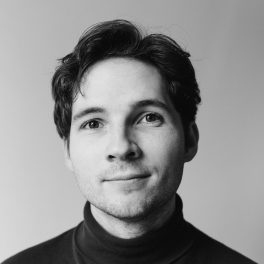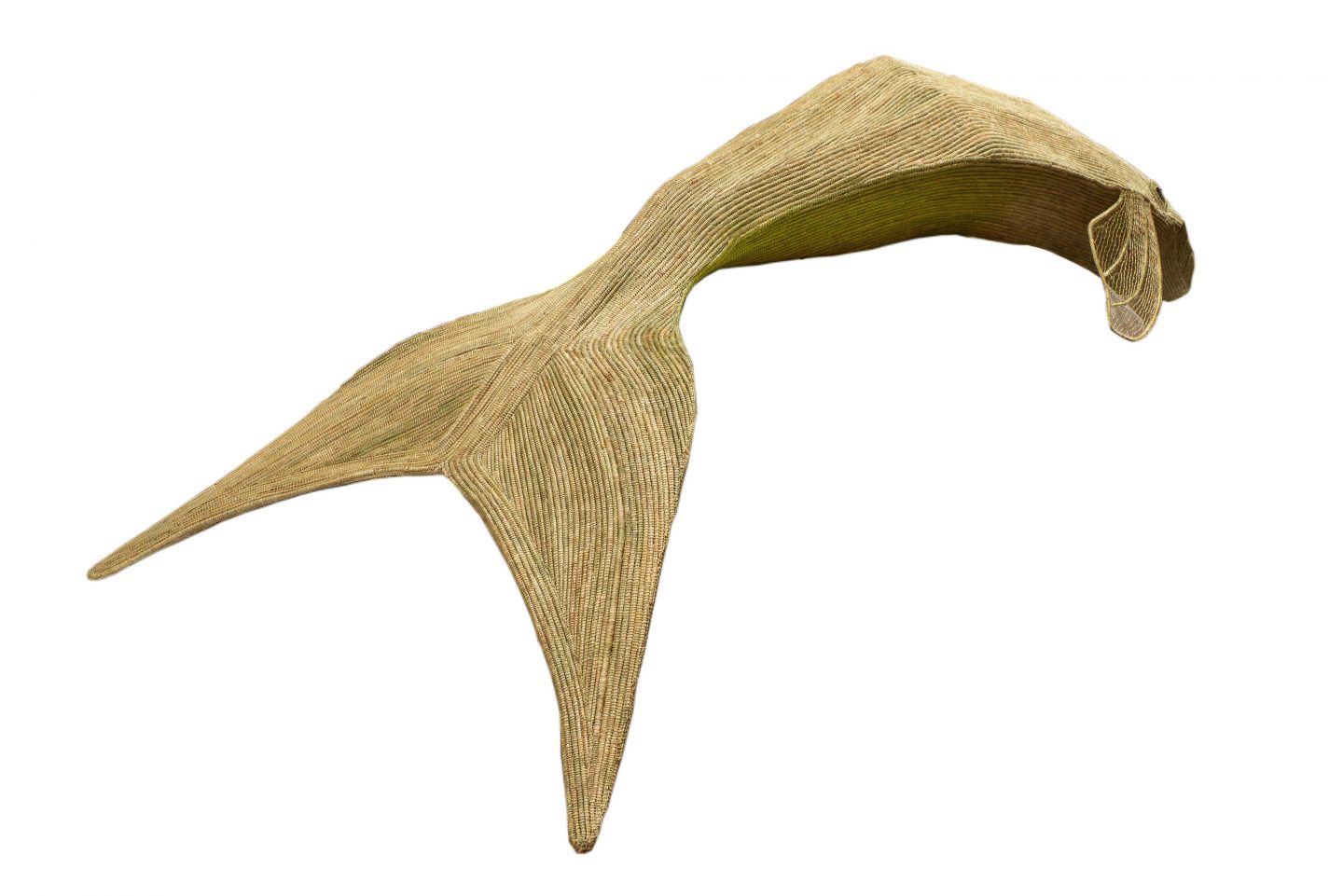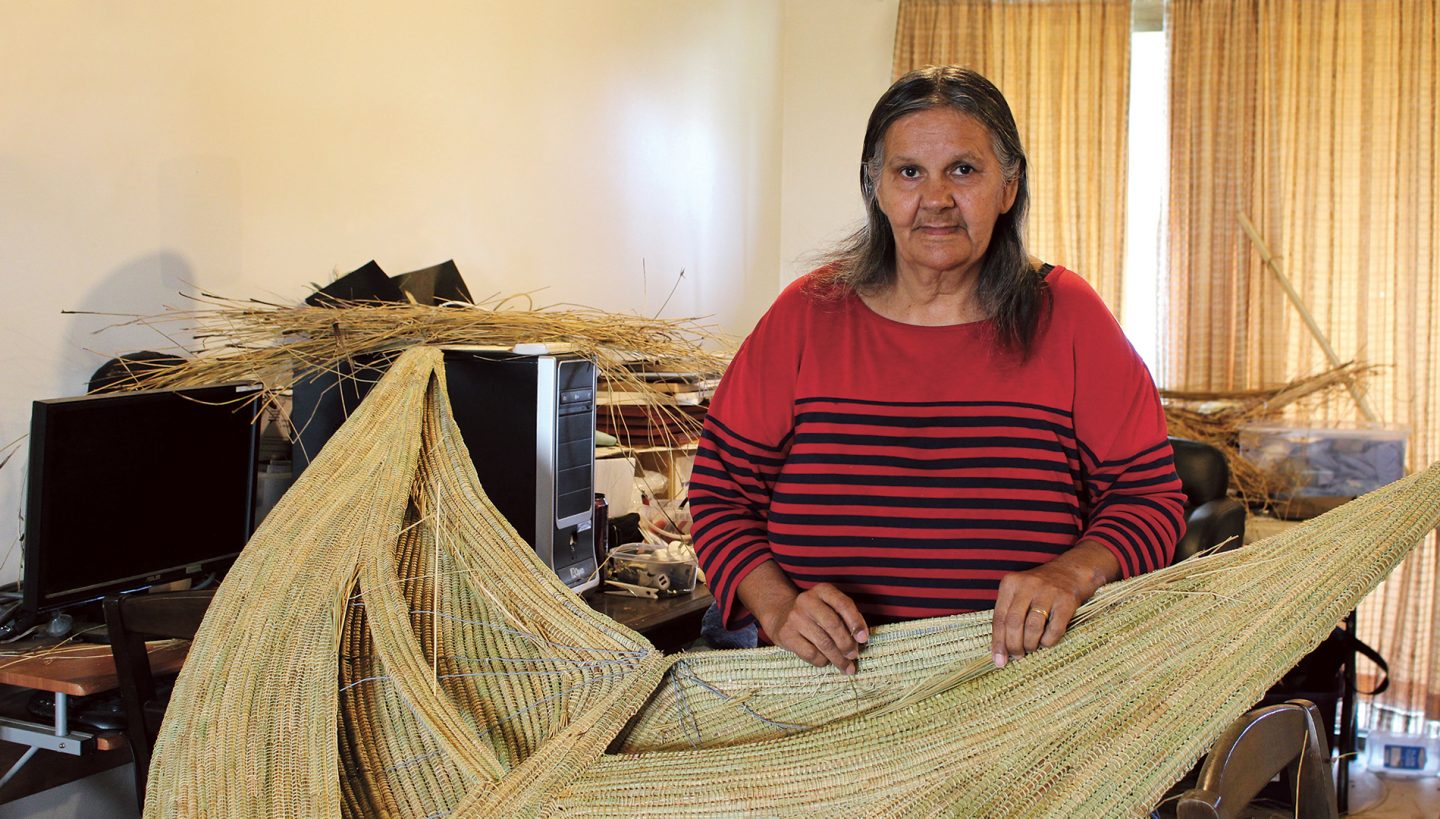
Walter Marsh
Walter is a writer and editor living on Kaurna Country.

The natural environment of the lower lakes is deeply entwined with the cultural life of the Ngarrindjeri community, whose traditional practice of weaving freshwater rushes has taken on a breathtaking new form for Tarnanthi 2019.
“Our Old People did the weaving for survival, they made fish nets, fish traps, baskets to gather the food, big mats to sit on, the back warmers,” Aunty Ellen Trevorrow tells The Adelaide Review. A senior Ngarrindjeri Weaver and co-founder of Ngarrindjeri Eco Arts Co-op, Trevorrow is both an acclaimed artist and link in a long, long chain of weavers.
“Everything they made they used, it was a very important part of their life. You think about all the stories that got told while they weave, and here we are today doing things like this… I wouldn’t have believed this was going to happen, these big structures.”
Trevorrow’s biggest structure yet is Kondoli, a 4.4 metre long Southern Right whale that will take pride of place in the South Australian Museum as part of Tarnanthi 2019. “The whale is the keeper of fire, the man that had the fire,” she says of the Kondoli creation story. “What happened is, there was a bit of jealousy going on over the fire. He got a spear in the back of the neck while fighting over this fire, and he dived into the ocean and formed this whale – the spout is where he got speared in the back of the neck.”
Spread over seven months of work at Camp Coorong, just outside Meningie, Kondoli is a family and community project in every sense, with younger members of the community helping collect the rushes and fellow artists Bruce Trevorrow, Jelina Haines, Bessie Rigney and Luke Trevorrow joining Ellen in the weaving and construction.

“I’m 45 now – I remember picking bunches of rushes for 25 cents!” says Bruce, Ellen’s son who welded the metal framework to form a diving whale. “We call it family time when we go out and pick the rushes,” she adds.
In addition to being an important medium for their creative practice, these rushes are a link to the ecosystem of their country and vital reflection of its health. “We’re always looking for them,” she says. “These rushes grow tall, hit the ground and start growing again – through picking them we’re helping them grow.
“Because we had the drought in 2007, these rushes weren’t growing, so it was really important to look for other areas, and look after ones that are close to us.” At their healthiest the rushes can grow up to six feet tall – an increasingly rare sight. “You can tell that we’ve got problems; the land is sad, because the rushes aren’t growing. We’re smiling when we get the long ones – that’s less joining you have to do when you’re weaving.”
Standing beneath the Kondoli and looking up at the great whale’s belly, the time and intention that has gone into every loop and strand is evident. Which of course, ties this community to the generations of Ngarrindjeri weavers who came before them, and will come after them.
Ellen and her fellow weaver Aunty Noreen Kartinyeri were taught the practice 37 years ago by Kartinyeri’s late mother Dorothy. “Noreen’s mum had got it from her mum, and we look at those cycles of weavers,” Ellen explains. “That’s what Noreen is in her family line, and that’s what I talk about with my family.
“On a project like this, we have children all around us. It’s so important for them, to hear the stories and then go out on the land to pick the rushes. It’s important for our children, and their children, it goes on forever.
“Stitch by stitch, circle by circle, weaving is like the creation of life. All things are connected.”
Kondoli: the Keeper of Fire
South Australian Museum
From 18 October
The Adelaide Review is a media partner of the South Australian Museum

Walter is a writer and editor living on Kaurna Country.